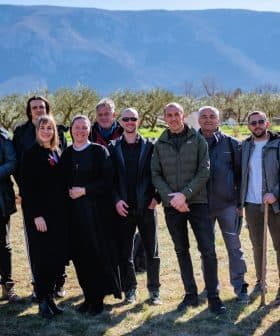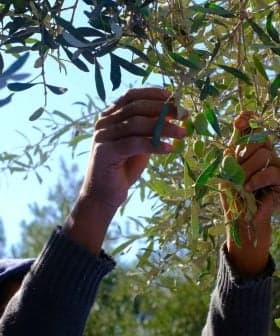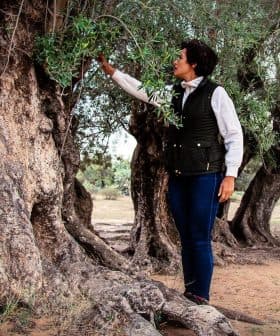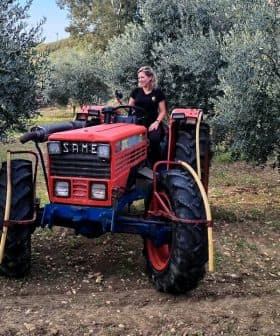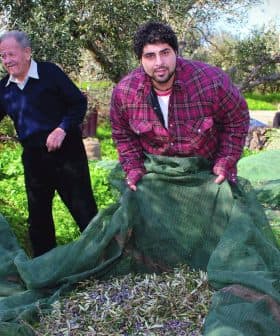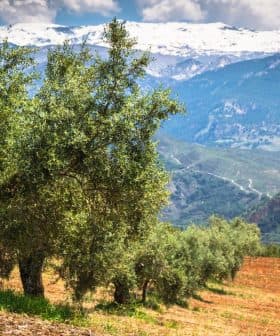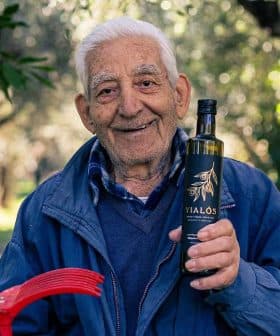Sustainability, Quality and Community Drive This Award-Winning Tunisian Producer
The Tunisian olive oil producer and exporter Olyfo is working to combine the latest technology with traditional Tunisian varieties and farming practices into world-class products.
 The co-founders of Olyfo are working to share best practices with their partner farmers to promote the broader Tunisian olive growing sector. (Photo: Olyfo)
The co-founders of Olyfo are working to share best practices with their partner farmers to promote the broader Tunisian olive growing sector. (Photo: Olyfo) Tunisian company Olyfo, founded in 2020, won a Silver Award at the 2025 NYIOOC World Olive Oil Competition due to their expertise in farming, milling, and bottling processes. Olyfo exports 100% of its olive oil, focusing on quality and sustainability, and aims to become a global benchmark for high-quality olive oils from Tunisia.
From the agricultural heartlands of Tunisia’s Kairouan and Zaghouan region, a relatively new company earned a Silver Award at the 2025 NYIOOC World Olive Oil Competition. For the founders of Olyfo, the win did not come as a surprise.
“This year, we knew we would have won. We have accumulated enough expertise over the last four years to know what we needed to do during the farming, milling and bottling processes,” Ahmed Hamza, co-founder and managing director of the company, told Olive Oil Times.
While Olyfo was officially constituted in 2020, the farms behind it were founded between 2015 and 2017.
With the right positioning, storytelling, and continued quality focus, Tunisian olive oil can become a global benchmark.
Today, the company manages traditional rainfed and super-intensive olive groves. Overall, Olyfo cultivates about 150,000 olive trees across 300 hectares.
Olyfo’s business model integrates modern practices and international standards with traditional farming. According to the company, this approach allows for the development of collaboration and ties with the local farmer community.
“We work directly with local farmers and millers, supporting them with knowledge, fair prices and long-term relationships. This ethical model strengthens rural communities while maintaining consistent supply and quality,” said Yahya Chemli, Olyfo co-founder and director of production and quality.
See Also:Producer Profiles“We are always sharing the best lessons learned with the community of farmers, millers and competitive exporters around us,” Hamza added. “We also work on building strong partnerships with neighboring farmers and millers as the company’s export capacity is growing.”
Olyfo exports 100 percent of its olive oil, both in bulk and bottled form, to a dozen countries.
“Bulk allows a faster return on investment, with our bottled olive oils mostly coming from the traditional orchards,” Hamza explained.
According to the company, sustainability is the key to its business. “The work we do aims at maintaining the soil fertility and enriching biodiversity while also providing a viable income to involved farmers,” Hamza said.
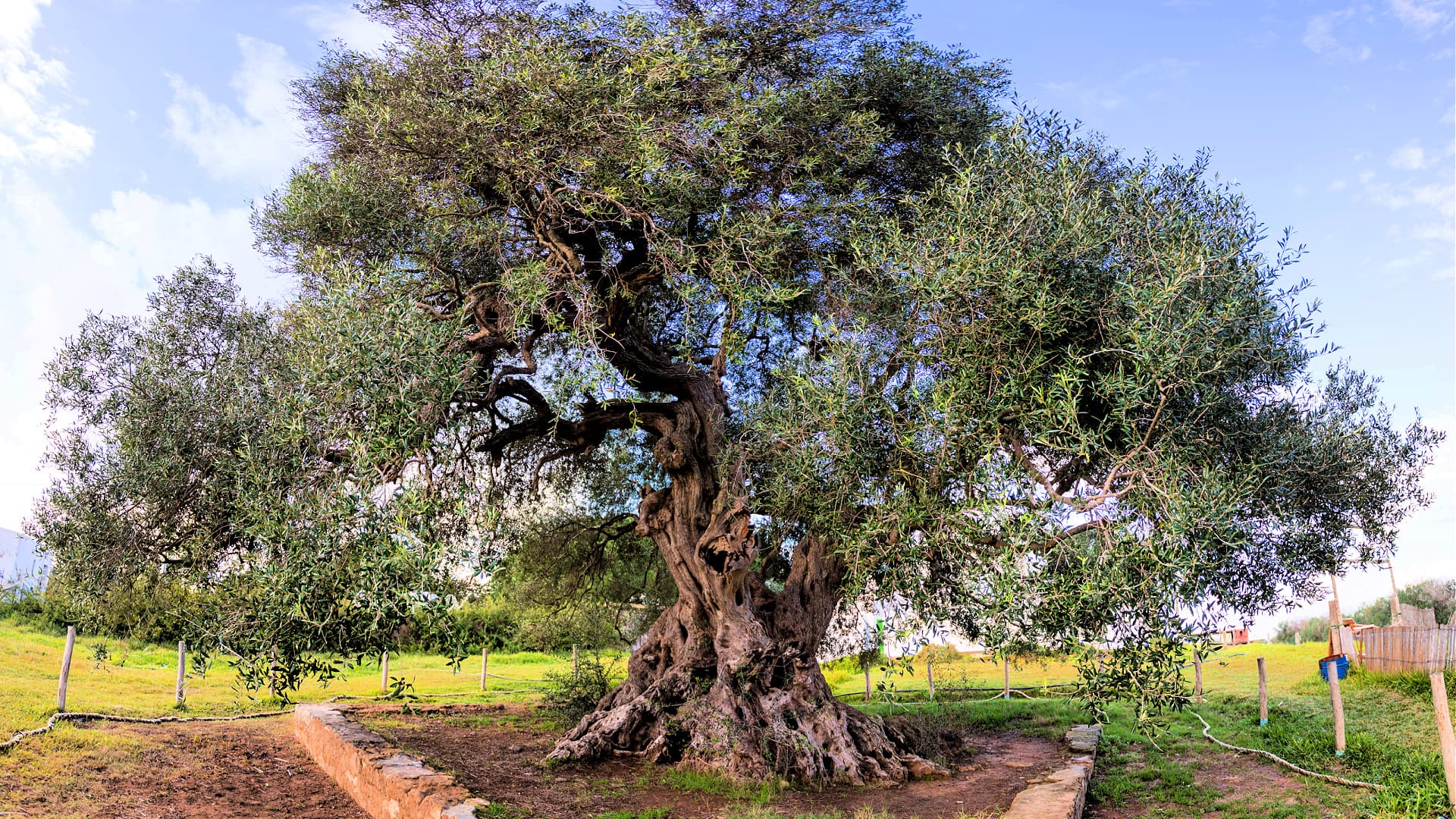
The Olyfo team cares for a traditional grove and works to protect the country’s heritage of millenary trees. (Photo: Olyfo)
According to its founders, sustainability is present in every step of the company’s operations, including an organic approach to farming and investment in long-term soil fertility.
“Besides climate volatility, water management is key,” Chemli said. “That’s why we rely on precise irrigation control through technology and invest in drought-resistant cultivars and organic soil practices to boost resilience.”
“We use connected sensors for precise irrigation, apply cow manure to enhance soil fertility and sow fava beans to naturally enrich the soil with nitrogen,” he added. “This supports healthy trees and ensures long-term soil sustainability and product quality.”
Olyfo grows Chemlali, Koroneiki, Arbosana and Arbequina olive trees in Kairouan, with Olyfo co-founder Salma Lassir Amara growing Chetoui olive trees in Zaghouan.
Apart from those main cultivars, the Tunisian company can choose from dozens of other local olive tree varieties with interesting flavors.
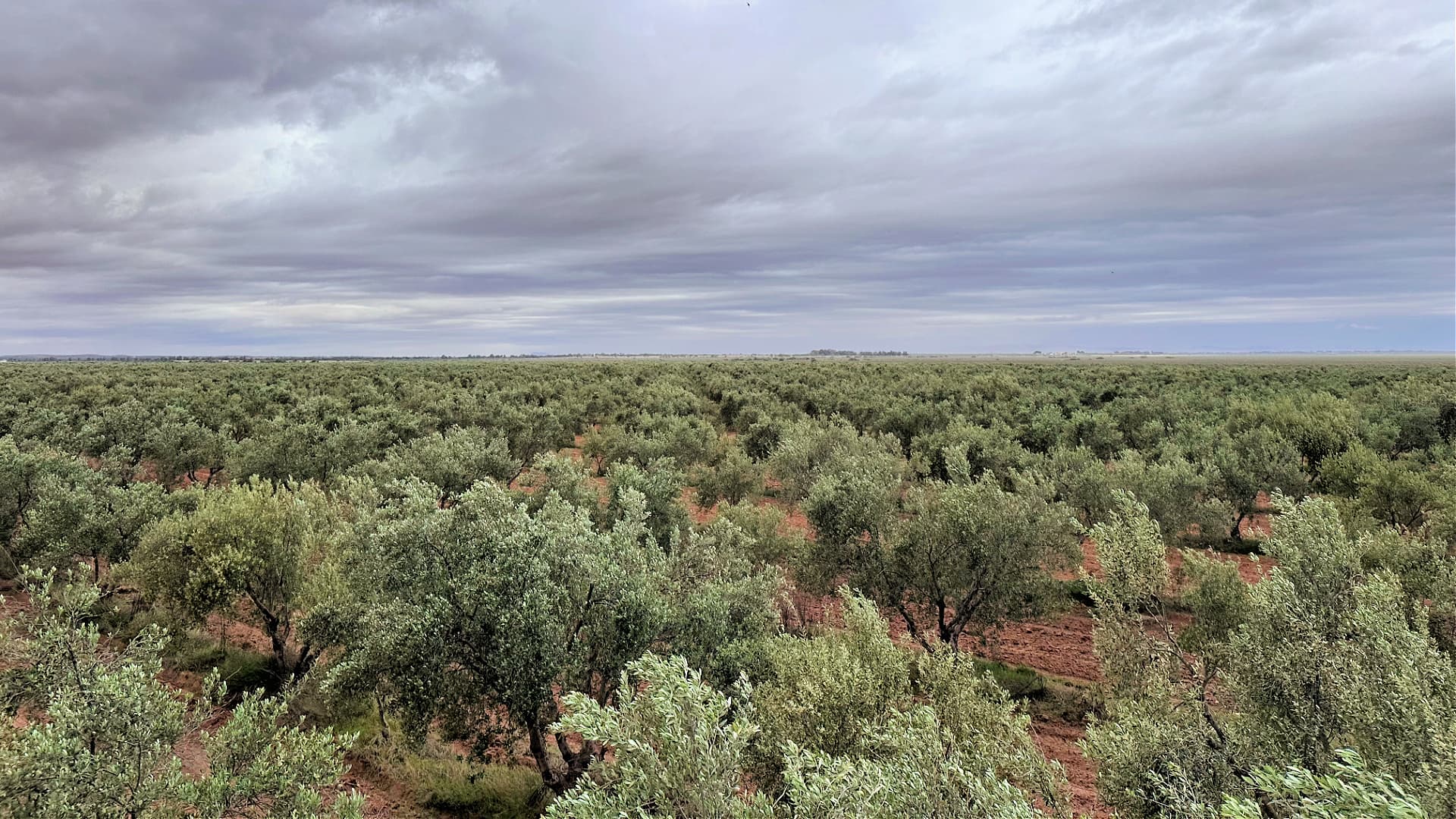
Olyfo also works a super-high-density olive grove in another part of the country. (Photo: Olyfo)
“I believe we have a fruity and aromatic olive oil that embodies the beauty of our farms in Tunisia, specifically Kairouan,” Hamza noted. “Still, we experiment with the delicious Sayali and its mint notes, with Besbessi, Jarboui, Zalmati and others.”
“Many customers tend to buy the same quality olive oil over time, others also like to explore different nuances of flavors,” he added.
According to Chemli, Olyfo’s olive groves are in the perfect location to benefit from diverse terroirs.
“In the north, in Zaghouan, we have cool breezes and fertile hills for our Chetoui,” he said. “In the center, in Kairouan, we face extreme heat but benefit from around 300 days of sunshine yearly, which reduces disease pressure.”
Founded by three friends previously engaged in business, engineering and agriculture, the company’s name comes from the Afrikaans word for olive, Olyf, with the addition of an “o” that stands for “oil.”
As the company expands its reach in selling quality olive oil abroad and engaging a larger number of farmers, it hopes to shape a virtuous circle for the whole community.
“As our business expands, we hope to be soon able to institute the Olyfo Foundation. Its work will be to give back to the community,” Hamza said. “There is so much to do, from schools, health support for kids, music and cultural opportunities.”
The company expects to be increasingly involved in conferences and events to share knowledge about modern technologies and a sustainable approach to farming.
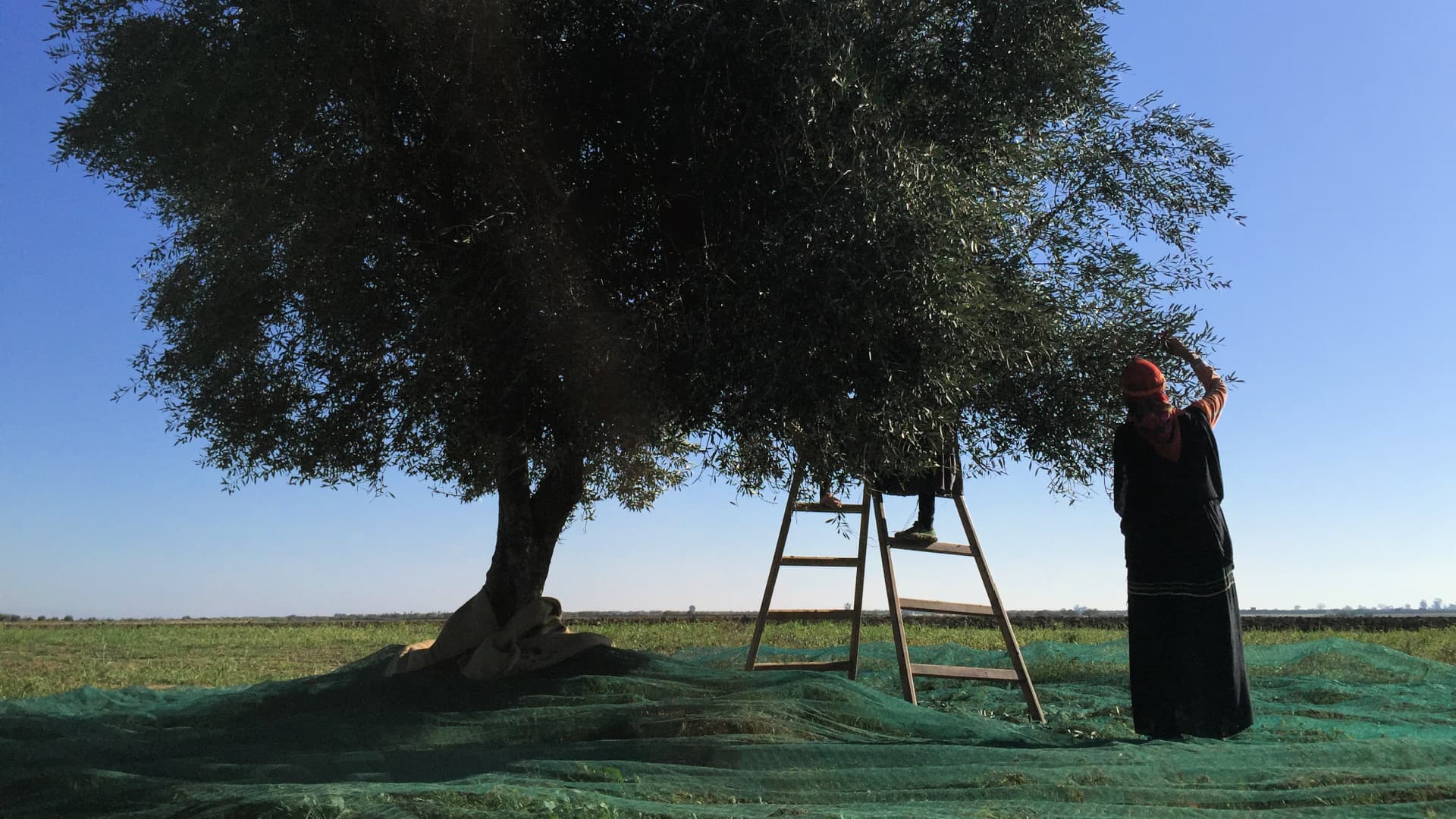
The producers behind Olyfo celebrated a debut Silver Award at the 2025 NYIOOC World Olive Oil Competition. (Photo: Olyfo)
According to Olyfo, focusing on quality is the main challenge. “It is not an easy game in a market that values price over quality,” Hamza said. “Yet, that is the mission we set for ourselves. We aspire to become one of the world’s leading brands of olive oil and are up for the challenge.”
According to the company, most clients understand quality and the work it implies.
“Quality is becoming the main differentiator, especially in premium segments. Polyphenol content, traceability and sensory excellence are now priorities for educated consumers and buyers,” Chemli said.
“They also recognize the investments that quality requires and the patience needed to bring a superior organic quality to the world,” Hamza explained.
While expanding its business, Olyfo can follow the path of other large companies that have brought Tunisian olive oil worldwide.
“I believe there is a revolution of olive oil in Tunisia,” Hamza said. “So many new players are trying to sell Tunisian premium extra virgin olive oil, and I am sure such efforts will place Tunisia at its well-deserved position on the world stage,” he added.

Ahead of the coming 2025/26 crop year, Olyfo said the situation in the olive groves looks good for a mild summer. (Photo: Olyfo)
According to Chemli, Tunisia is ready to shine globally, not just as a bulk exporter but as a producer of high-quality olive oils.
“With the right positioning, storytelling, and continued quality focus, Tunisian olive oil can become a global benchmark,” he said.
Hamza added that some brands are already succeeding and opening doors.
“We must keep learning, pushing and sharing lessons learned with Tunisian colleagues in the sector. This can only benefit the country and business,” he said.
The olive harvest leading to the triumph in New York was difficult.
“We faced many challenges, including reduced worker availability and very hot weather during summer. On some days it exceeded 48 ºC,” Hamza said.
As the new season unfolds, market instability and tariffs imposed by the United States are having an impact.
“The tariff situation has been a major blow for the business. We were fortunate enough to have our efforts succeed in other countries such as the United Kingdom, New Zealand and Taiwan,” Hamza said.
“Yet, the U.S. market remains a strategic focus for our company, and we would love to share our passion for great quality olive oil with the American consumer,” he added.
Good news for the company comes from the signs of a promising olive season. To date, the outlook in the groves is good.
“It’s too early to make predictions, but we’ve had good rainfall recently, and the flowering season is going well. It gives us hope for a strong harvest, but we’re watching closely,” Chemli explained.
“We can just hope that summer will be gentle on the trees,” Hamza concluded.
Share this article


